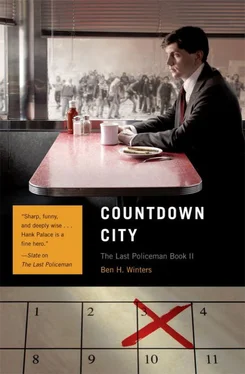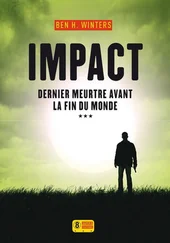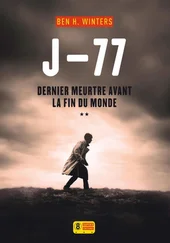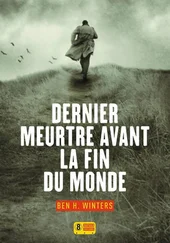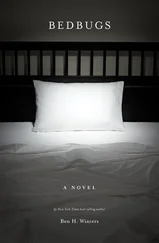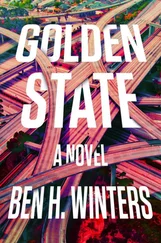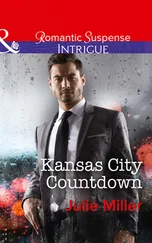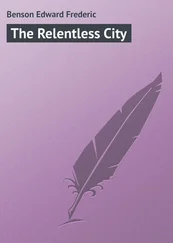“Right,” I say.
“Yes. Right. Is she paying you?” She turns to me, crosses her arms. “The wife?”
“No.”
“So why are you doing it?”
“I don’t know,” I say, and give her a quick little half smile. “Although people do keep asking me that.”
“I’ll bet.” And then she smiles back, just the tiniest secret hint of a smile. There’s a small gap between her front teeth, like a rascally ten-year-old.
“You thought before that I had been sent to kill him. Why would someone be trying to kill him?”
The smile disappears. “Why the fuck should I tell you?”
“Are you in love with him?”
“Love is a bourgeois construct,” Julia says immediately, but nevertheless she turns away from me, gazes out over the rooftops and treetops of the transformed campus. I wait, allow her a moment alone with whatever memories she’s replaying. And then I gently push forward, talking softly, telling her the story she already knows.
“Brett arrested you a couple years ago, in Rumney, but you gave him an earful from the bars of the holding cell. You made him see the justice of your cause, and he came to respect you. You talked him out of testifying. You developed feelings for each other.”
Julia gives me a quick sour look at the word feelings , and I nod in acknowledgment of the fact that feelings are a bourgeois construct, but I keep going.
“But he wouldn’t leave his wife. That wasn’t in his character. So at the end of the summer you went back to school, and he left the state troopers and moved to Concord, and that was that.”
She’s not saying anything, she’s not even looking at me now. Her eyes are fixed on her campus, her people: the exercisers, the movie watchers, the undulating swarms on the central quad. But neither is she interrupting, neither is she saying no. I keep talking, just a guy in a suit on a rooftop telling a story on a summer’s day.
“But then the asteroid comes along. The countdown begins, and it changes everything. You think, well, maybe now . Maybe now Brett and I get our shot. You wrote him letters, told him all about the Free Republic and what you had accomplished here. You told him he should come and play chess and hang out with you until the end.”
Now Julia raises a single finger, still staring straight ahead. “One letter. A couple months ago.”
“Okay,” I say. “One letter. And then yesterday, suddenly, he shows up.”
I can picture the scene, Brett Cavatone slipping into the back of that crowded noisy auditorium as I had, and suddenly Julia spots him from her chair on the stage. Her jaw drops, her commanding pose of leadership wavers momentarily like a blurry TV signal as Brett smiles up at her, self-contained and formidable and affectionate. “He tells you he’s here now, there aren’t many days left and he wants to spend them with you.”
“No,” says Julia abruptly.
“No?”
At last she turns away from the rail and looks at me straight on, lips pursed with emotion, and I don’t care if love is a bourgeois construct or not, I’ve seen love once or twice before and this is the face of a woman in love. She loves him and bitterly regrets what she says next.
“No, he did not come because there aren’t many days left and he wants to spend them with me. He came for guns.”
“He came for—” I blink. “What?”
Julia laughs then, once, a harsh bark, as I stare at her, open-mouthed with bafflement.
“Come on,” she says, and flings open the trapdoor to the stairwell. “Let’s take a walk.”
* * *
Jeremy Canliss was right. Brett had a woman on his mind. But it was neither lust nor love that brought him to the University of New Hampshire to find Julia Stone; it was the lure of the weapons she had proudly described to him in that one letter, a couple months back.
Julia Stone leads and I follow, a pace or two behind, down the path leading away from Kingfisher, under the gauntlet of extinction—Permian, K-T Boundary, Justinian Plague—and off across campus. We don’t speak, we just go, my nervous excitement making itself known in the loud rattling of my heart in my chest, my understanding of this case revolving slowly like a wall of books in a haunted mansion, revealing the hidden staircase behind. I have questions—more questions, new questions—but I just walk, allow myself to be led, Julia offering muted greeting to nearly everyone we pass on the twisting trails.
Our destination, as it turns out, is a compact concrete shed with a flat tar roof, built along a chain-link perimeter fence separating the UNH facilities buildings from College Road behind them. The shed sits in the shadow of the hulking power station, now defunct, its coils and towers silent and cold.
Julia opens the padlocked shed and leads me inside. It’s a single room, a perfect box: flat floor, flat ceiling, four flat walls. The sunlight filters in dimly through the low dirty windows. The walls are lined with hooks that are hung with guns: pistols, rifles, automatics and semi-automatics. On a shelf near the floor are a dozen boxes of ammunition, neatly arranged. The revolutionary Free Republic, Julia Stone explains, appropriated all this gear from the UNH ROTC program at the time of the “revolution.” What Brett told her was that he needed “serious weapons”; he asked for a pair of high-powered rifles, M140s with bolted scopes. Julia gave him the guns and pinned their disappearance on the rapist.
“Not that the guns were mine to give,” says Julia, shaking her head bitterly. “They belong to the community. I don’t know why I let him talk me into it. He’s just…”
She opens her hands, trailing off. But I know what she wants to say. I’ve heard it before: He’s just Brett .
We step outside and Julia locks the door and we lean against one of the concrete sides, facing the power station, and I fight back a wave of anxiety, an intense consciousness of what’s in the shed. The destructive capability of just this one tiny building, this single small room in a world full of them. Because I’ve seen rooms like this before, since the asteroid’s slow approach became known. By now there must be millions of them, basements and attics, sheds and garages, lined with weapons silently waiting to be used, a world of tinderboxes ready to bloom into flame. I look at my watch and I am late—the deadline given to me by the guards at Thompson Hall has passed. I offer up a silent apology to Houdini, wondering whether those two girls or the guys in the black shirts would actually do anything to harm the dog.
I circle back around to my initial question.
“Julia, what is going on? Who is trying to kill Brett?”
“I don’t know,” she says. “Maybe no one.”
“Is he in danger?”
“Danger? I mean, danger doesn’t even…”
She shakes her head with bitter amusement. She’s going to tell me, I realize—she’s already started to tell me. For the first time I feel it with a wrenching ecstatic certainty: I’m going to find him. I’m coming, Brett — I’m coming .
“Julia?”
But her affect changes; her face gets tight with anger. “Why the fuck should I tell you?” she says, spitting the words. She wheels away from the wall of the shed, glaring. “Why should I tell you shit ?”
I respond not to the anger but to the question. She wouldn’t be asking if she didn’t want an answer. She wouldn’t have taken me to the guns. “You care about him. Whatever passed between the two of you, it meant something to you. Perhaps you don’t love him, but you wish to keep him from harm. If I find him, maybe I can make that happen.”
She doesn’t answer. She pulls nervously on one of her pigtails, a small human gesture.
Читать дальше
